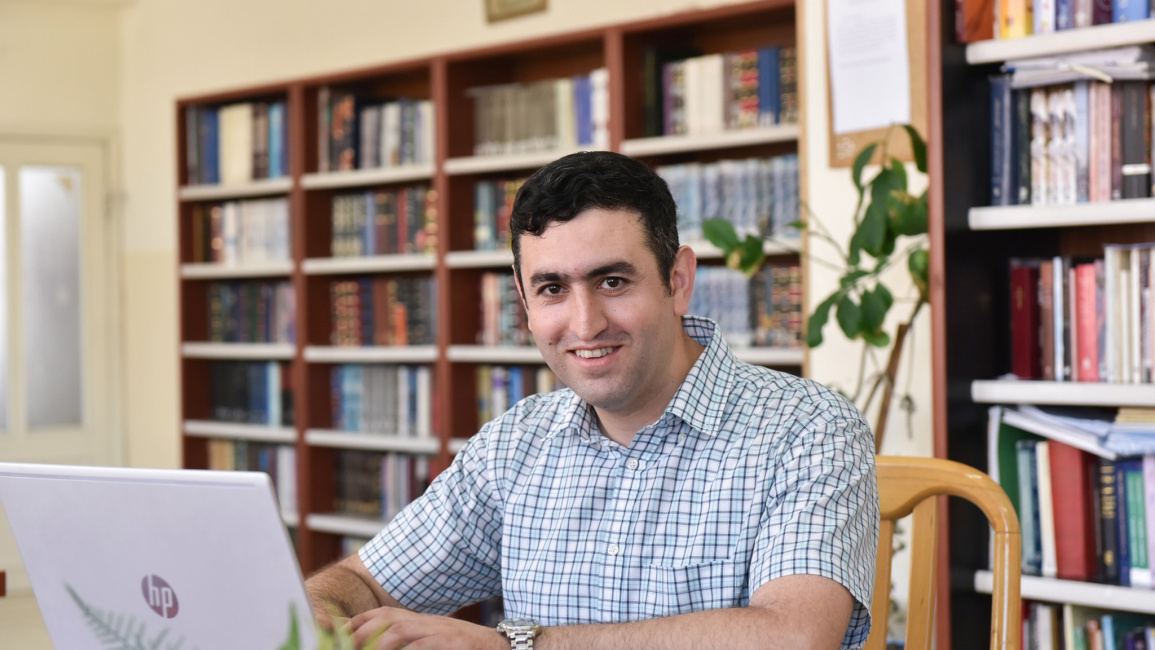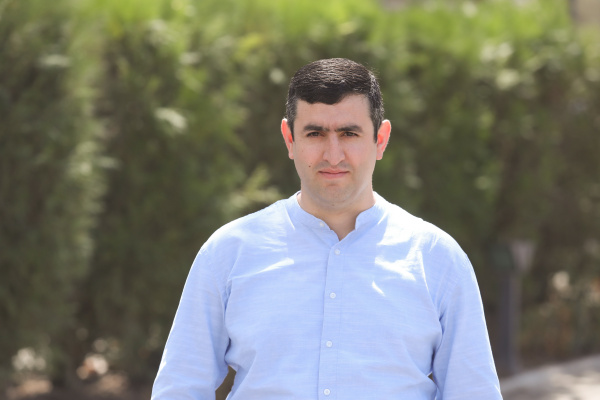January 20, 2025 | 15:00
Research
Publications and scientific journals
Competitions
Endangerment of languages of Azerbaijan’s national minorities: Study by researchers from Yerevan State University
UNESCO's World Atlas of Languages includes over 3,000 endangered (extinct) languages, one of which is Tat. This language is spoken by the Caucasian Persians living in Azerbaijan, who have raised concerns that the younger generation understands Tat but no longer speaks it as their native language. What political factors contribute to the extinction of languages? What are the underlying motivations behind these policies, and what changes do languages undergo before they approach the brink of extinction? The research focus of Artyom Tonoyan, Associate Professor in the Chair of Iranian Studies at YSU Faculty of Oriental Studies, and his research team, lies in Azerbaijan's language policy and its impact on the changes in the country's linguistic landscape.

The scientific project titled "Language Endangerment in Azerbaijan: A Study of State Language Policy and the Linguistic Behavior of Indigenous Peoples through the Example of Iranian Languages (Kurdish, Talysh, Tat)" presented by the Chair of Iranian Studies at Yerevan State University has been approved for funding as part of the "Research in Social Sciences, Armenian Studies, and Humanities – 2024" competition, organized by the Higher Education and Science Committee of the Ministry of Education, Science, Culture, and Sports of the Republic of Armenia.
The project leader, Artyom Tonoyan, provided details regarding the ongoing research.
Methods of Language Study in a Closed Country for Armenian Researchers
Armenia and Azerbaijan do not maintain diplomatic relations, making Azerbaijan a closed country for Armenian researchers. Therefore, conducting traditional field research in Azerbaijan presents significant challenges. This issue affects not only Armenian researchers but also scholars from Western countries that have diplomatic ties with Azerbaijan. These researchers often encounter various obstacles when attempting to carry out studies in regions where, for instance, Talysh or Caucasian Persians reside. Such researchers are frequently denied access to conduct fieldwork in these areas, often under various pretexts. However, in the modern world, numerous tools exist for conducting linguistic research without being physically present, including social media platforms.
As a country in conflict, Armenia has had this experience since at least the early 2000s. However, researchers from other countries also use such remote communication methods, particularly during the COVID-19 pandemic, when this form of communication saw widespread application.
Ways to Reveal the Linguistic Picture

To uncover the linguistic picture, social media platforms are used to identify residents of villages such as Shamakhi or Quba, or groups associated with these villages, and study the extent to which native speakers of these languages are interested in preserving their language. This involves exploring whether communication in these languages is seen as an object of mockery, or whether it serves as a symbol of prestige. We also examine the linguistic behavior of native speakers in urban and rural environments. For example, we analyze whether speakers can maintain their language when transitioning from a rural environment to an urban setting.
Our research focuses on ongoing changes in language preservation, comparing these findings with previous studies we have conducted.
Textbooks as Pillars of Language Preservation
Within the scope of this research, we will show how Azerbaijan's state language policy impacts the preservation of indigenous languages in the country. We will also explore the main motivations behind such policies and how they lead to the endangerment of languages within Azerbaijan’s territory.
The research began in July of the previous year, and as part of the project, an article has already been drafted, now in its final stages. This article addresses the issue of Caucasian Persian textbooks in Azerbaijan. In September 2024, after a long hiatus, Azerbaijan published a Tat-language textbook. The last such publication in Tat was in 1995. The article analyzes both textbooks, investigating the reasons behind Azerbaijan’s decision to publish a new Tat-language textbook after a 30-year hiatus. We explore which regional dialect was chosen as the standard for this textbook. Despite Azerbaijan's portrayal as a multicultural state, the 2024 Tat-language textbook deviates from the previously applied standard, selecting a dialect understandable only to the residents of a single locality. Tat in Azerbaijan has six main dialect groups, which, while distinct from one another, have been the subject of linguistic studies, such as the 2005 research that identifies the most universally comprehensible dialect. However, the dialect chosen for the 2024 textbook is largely unintelligible to most speakers. Further surveys conducted by our research group among the Tat community in Azerbaijan revealed that the majority of them do not understand this dialect.
The last time the Tat language was taught in Azerbaijan was in 1996, and Kurdish has not been taught at all since the 1990s. Talysh and Lezgian are taught in elementary grades.
For comparison, the Tat language in the Russian Federation holds official language status, as it is spoken in Dagestan. Tat-language radio broadcasts, newspapers, and television programs exist there, despite the language having fewer speakers than in Azerbaijan. In Iran, Talysh speakers enjoy considerable freedom, publishing newspapers, books, and operating television and radio stations in their native language.
The research team working on the project "Language Endangerment in Azerbaijan: A Study of State Language Policy and the Linguistic Behavior of Indigenous Peoples through the Example of Iranian Languages (Kurdish, Talysh, Tat)" includes Professor Vardan Voskanyan, Head of the Chair of Iranian Studies, and Associate Professors Hakob Avchyan and Tereza Amryan. The team also collaborates with international partners from Carleton University (Canada), with a two-week visit scheduled to take place in Yerevan as part of the project.

